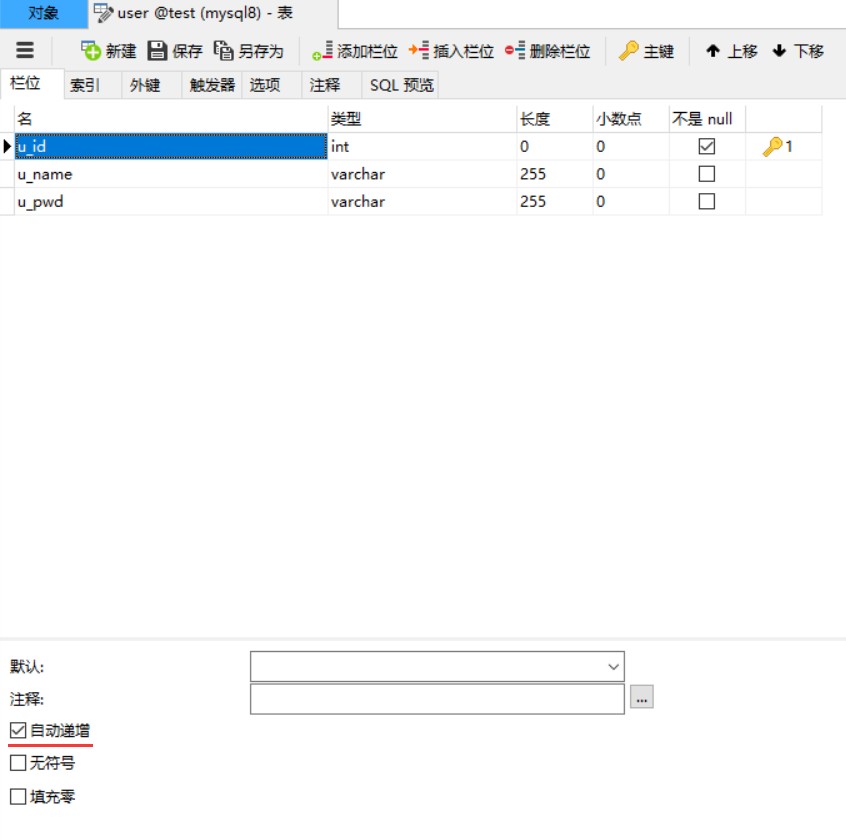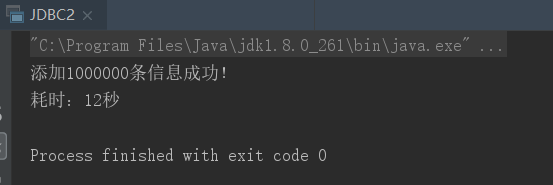教你如何6秒钟往MySQL插入100万条数据!然后删库跑路!
由于我用的mysql 8版本,所以增加了Timezone,然后就可以了
前提是要自己建好库和表。 数据库test, 表user, 三个字段: u_id、u_name、u_pwd,然后主键自增
conn = DriverManager.getConnection("jdbc:mysql:///test?" + "&rewriteBatchedStatements=true&serverTimezone=Asia/Shanghai", "root", "123456");

运行结果如下:

代码如下:
package rs.dms.test; import java.sql.*; /** * @author : Bei-Zhen * @date : 2020-08-24 0:43 */ public class JDBC2 { //static int count = 0; public static void main(String[] args) { long start = System.currentTimeMillis(); conn(); long end = System.currentTimeMillis(); System.out.println("耗时:" + (end - start) / 1000 + "秒"); } public static void conn() { //1.导入驱动jar包 //2.注册驱动(mysql5之后的驱动jar包可以省略注册驱动的步骤) //Class.forName("com.mysql.jdbc.Driver"); //3.获取数据库连接对象 Connection conn = null; PreparedStatement pstmt = null; { try { //"&rewriteBatchedStatements=true",一次插入多条数据,只插入一次 conn = DriverManager.getConnection("jdbc:mysql:///test?" + "&rewriteBatchedStatements=true&serverTimezone=Asia/Shanghai", "root", "123456"); //4.定义sql语句 String sql = "insert into user values(default,?,?)"; //5.获取执行sql的对象PreparedStatement pstmt = conn.prepareStatement(sql); //6.不断产生sql for (int i = 0; i < 1000000; i++) { pstmt.setString(1, (int) (Math.random() * 1000000) + ""); pstmt.setString(2, (int) (Math.random() * 1000000) + ""); pstmt.addBatch(); } //7.往数据库插入一次数据 pstmt.executeBatch(); System.out.println("添加1000000条信息成功!"); } catch (SQLException e) { e.printStackTrace(); } finally { //8.释放资源 //避免空指针异常 if (pstmt != null) { try { pstmt.close(); } catch (SQLException e) { e.printStackTrace(); } } if (conn != null) { try { conn.close(); } catch (SQLException e) { e.printStackTrace(); } } } } } }